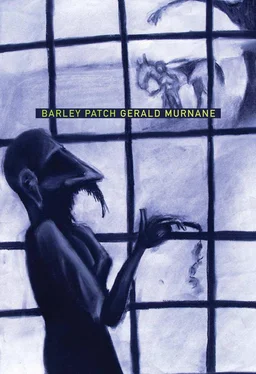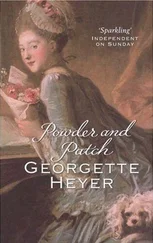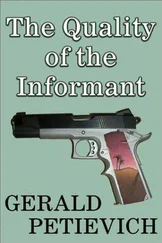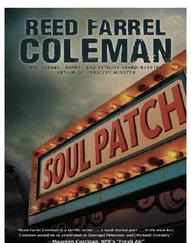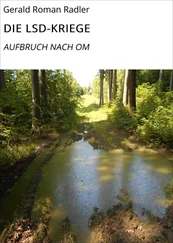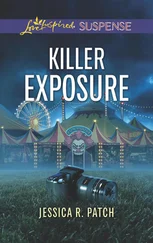Gerald Murnane - Barley Patch
Здесь есть возможность читать онлайн «Gerald Murnane - Barley Patch» весь текст электронной книги совершенно бесплатно (целиком полную версию без сокращений). В некоторых случаях можно слушать аудио, скачать через торрент в формате fb2 и присутствует краткое содержание. Год выпуска: 2011, Издательство: Dalkey Archive Press, Жанр: Современная проза, на английском языке. Описание произведения, (предисловие) а так же отзывы посетителей доступны на портале библиотеки ЛибКат.
- Название:Barley Patch
- Автор:
- Издательство:Dalkey Archive Press
- Жанр:
- Год:2011
- ISBN:нет данных
- Рейтинг книги:5 / 5. Голосов: 1
-
Избранное:Добавить в избранное
- Отзывы:
-
Ваша оценка:
- 100
- 1
- 2
- 3
- 4
- 5
Barley Patch: краткое содержание, описание и аннотация
Предлагаем к чтению аннотацию, описание, краткое содержание или предисловие (зависит от того, что написал сам автор книги «Barley Patch»). Если вы не нашли необходимую информацию о книге — напишите в комментариях, мы постараемся отыскать её.
Barley Patch — читать онлайн бесплатно полную книгу (весь текст) целиком
Ниже представлен текст книги, разбитый по страницам. Система сохранения места последней прочитанной страницы, позволяет с удобством читать онлайн бесплатно книгу «Barley Patch», без необходимости каждый раз заново искать на чём Вы остановились. Поставьте закладку, и сможете в любой момент перейти на страницу, на которой закончили чтение.
Интервал:
Закладка:
I would have reported in my abandoned work of fiction that the chief character, while he watched the rain trickling on the window of his classroom, would have preferred to be already an older man remembering certain events or even regretting that certain events had never taken place rather than to be still a young man preparing to experience those events.
At some time during the day of rain, the chief character would have looked through a certain booklet from among a collection of booklets displayed at the rear of his classroom, so I would have reported if I had gone on with my abandoned work. The chief character had noticed the booklets often before but had never looked into them. For some months afterwards, he would suspect that he had been led to look into the booklets by what he called the intervention of Divine Providence. Each of the booklets in the collection was intended to persuade young men to apply to train as priests or lay-brothers in one or another religious order. The booklet that the chief character looked through contained both text and illustrations. A number of the illustrations were of a building of two storeys. From one of these illustrations the chief character learned that the building was surrounded on three sides at least by mostly level grassy countryside that was not without trees. From captions beneath the illustrations, the chief character learned that the building housed the novitiate of a certain religious order; the place where young men trained as novices of the order during the first year after they had joined the order. In short, as I reported in an earlier section of this present work of fiction, the chief character of my abandoned work of fiction had decided to apply to join the religious order in question before he had read the text of the booklet published by the order. The illustration that the chief character was looking at when he made his decision was an illustration of the interior of a room of the sort that was occupied by each of the novices of the order. The room was furnished with a bed and a table and a chair and a cupboard. The table was so placed that a person sitting at it would face the window of the room. Given that the view through the illustrated window was a view wholly of sky, the chief character supposed that the room was on the upper storey of the building of two storeys. Soon after he had supposed this, the chief character saw in his mind an image of rain trickling down a window that overlooked some or another view of the Riverina district of New South Wales in his mind. While he watched the image of the trickling rain in his mind, the chief character of my partly completed work of fiction was pleased to suppose that he had found a means of going to live in an upper room of a building of two storeys without first having to go to university, where he might have had to spend his time studying books of small interest to him or preparing to approach one or another young woman.
Six months before the day of rain mentioned above, during two days of his summer holidays, the chief character had read all of the three hundred and more pages of Elected Silence , by Thomas Merton, published in London by Hollis and Carter in 1954 but first published several years before in the USA. The chief character had never heard of the book or its author before he received it as a prize at the end of his second-last year of school, and several times while he read it he supposed that the book had come into his hands through the intervention of Divine Providence. Elected Silence was the autobiography of Thomas Merton, who had been a teacher and a poet before becoming a monk in a Cistercian monastery in the USA. Merton had been prepared to give up his writing when he entered the monastery, but his superiors had allowed him to write poetry and had later encouraged him to write essays and to have them collected and published. (The chief character did not know it, but I learned some years ago from a biography of Thomas Merton that the royalties from his books became the chief source of income for the monastery and that their author was often exempted from following the rule of the monastery and was allowed, when he so wished, to live alone and to go on with his writing in the so-called hermitage, which was a weatherboard cottage in a grove of trees in the grounds of the monastery.) After he had read the book, the chief character had made inquiries and had learned that the Cistercian Order had a monastery in Australia but he had been disappointed when he found that the monastery was in hilly countryside only thirty miles from Melbourne.
The religious order with its novitiate in the Riverina district had been founded in Italy during the eighteenth century by a pious Italian priest, so the chief character learned from the booklet that had persuaded him to join the order. Both priests and lay-brothers of the order wore a black soutane and a black cloak. Both soutane and cloak had an insignia of scarlet embroidered over the wearer’s left breast. The special work of the order in Australia was to visit one after another parish and to conduct there a mission, something that has been described elsewhere in this work of fiction. When the priests were not conducting missions they lived a strictly regulated life in one or another monastery of the order. This was much to the liking of the chief character. He had no wish to live as a parish priest in some or another suburban or rural presbytery under the notice of his parishioners. Even when he worked on the mission, he would be looking forward to returning to his monastery and working on his latest poem.
The chief character was not easily able to persuade his parents to allow him to go to the Riverina district instead of to university. Whenever his parents reminded him of the benefits to be got from an education at university, the chief character would recite in his mind certain phrases from the poem “The Scholar-Gipsy,” by Matthew Arnold. He recited the phrases in order to see more clearly the connections between himself and the chief character of the poem. For the chief character of my unfinished fiction, the Riverina district would be the retired ground preferred by the scholar-gipsy: the lone wheat-fields and the river bank o’ergrown. The cloak that the scholar-gipsy wrapped around himself was a likeness of the black cloak that the chief character would wear as a novice shut away from the world. The most striking connection, however, was reported in the note that preceded the poem. The young man who had inspired the poem, he who had left university and had taken up with the gipsies, claimed to have discovered that the gipsies could do wonders by the power of the imagination and had resolved to learn their arts.
When the parents of the chief character gave their permission for him to join a religious order of priests, they were won over by his seeming sincerity and piety, or so the reader of my unfinished fiction might have supposed. Certainly, he had developed during the weeks after the rainy afternoon mentioned previously a keen longing to join the religious order of his choice. What he most longed for, however, was not to preach or to minister to other persons but to attend to his own salvation, as he would have expressed the matter. And whenever he thought of himself as attending thus, he saw himself in the future as reading or writing at a table in an upstairs room or as kneeling in a chapel or standing before an altar with his eyes closed and his head bowed.
Even during the last weeks before he travelled to the Riverina district in order to study for the priesthood, the chief character felt no strong affection for the personages that he knew as God or Jesus or Our Lady or the angels and saints. Even when he told his parents that he was called by God to the priesthood, he did not feel as though the above-named personages felt any strong affection for him. He felt as though the personages were remote from him and perhaps indifferent towards him for the time being but prepared to look on him favourably if he could prove himself worthy of them. This would require from him much more than mere virtuous living or the recitation of prayers. His becoming worthy required him to see further than most persons saw; to see into the places, wherever they were, where the personages most clearly manifested themselves; to dare even to see the personages themselves as they saw one another.
Читать дальшеИнтервал:
Закладка:
Похожие книги на «Barley Patch»
Представляем Вашему вниманию похожие книги на «Barley Patch» списком для выбора. Мы отобрали схожую по названию и смыслу литературу в надежде предоставить читателям больше вариантов отыскать новые, интересные, ещё непрочитанные произведения.
Обсуждение, отзывы о книге «Barley Patch» и просто собственные мнения читателей. Оставьте ваши комментарии, напишите, что Вы думаете о произведении, его смысле или главных героях. Укажите что конкретно понравилось, а что нет, и почему Вы так считаете.
